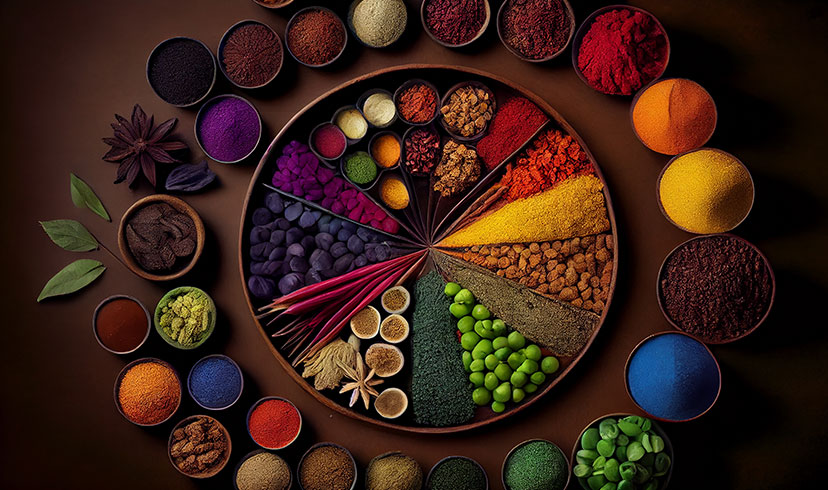
In today’s fast-paced world, convenience often trumps caution when it comes to our food choices. Processed and packaged foods have become a staple in many diets, but what lies beneath the attractive packaging is a concerning reality – a plethora of food additives. While some additives enhance taste, texture, and shelf life, others can pose potential health risks. Read on to learn more about food additives, highlighting the ones to avoid and how you can make informed choices to safeguard your health and well-being.
Understanding Food Additives
Food additives are substances added to food during processing to enhance or maintain certain qualities. They can be natural or synthetic and serve various functions, including preserving freshness, improving appearance, and intensifying flavors. The United States Food and Drug Administration (FDA) and other regulatory agencies worldwide have approved the use of many food additives, deeming them safe within certain limits. However, it is essential to be aware of potential health concerns associated with some additives.
Food Additives to Avoid
Artificial Sweeteners: Often found in sugar-free or diet products, artificial sweeteners like aspartame, saccharin, and sucralose have been linked to adverse health effects, including migraines, digestive issues, and changes in gut bacteria.
Sodium Nitrite and Nitrate: Commonly used as preservatives in processed meats, these additives have been associated with an increased risk of cancer, particularly colorectal cancer.
Monosodium Glutamate (MSG): A flavor enhancer, MSG has been linked to “Chinese Restaurant Syndrome,” characterized by headaches, sweating, and chest pain in some individuals.
Trans Fats: Partially hydrogenated oils contain trans fats, known to raise bad cholesterol levels and increase the risk of heart disease.
High-Fructose Corn Syrup (HFCS): HFCS is a sweetener commonly used in processed foods and sugary beverages, contributing to obesity and diabetes.
Artificial Food Colors: Synthetic food colors like Red 40, Yellow 5, and Blue 1 have been linked to hyperactivity in children and may trigger allergic reactions in some individuals.
Butylated Hydroxyanisole (BHA) and Butylated Hydroxytoluene (BHT): These preservatives are used to extend the shelf life of foods and have raised concerns about potential carcinogenic effects.
Potential Health Risks of Food Additives
Allergic Reactions: Some food additives can trigger allergic reactions in sensitive individuals, leading to symptoms like itching, hives, or difficulty breathing.
Hormonal Disruption: Certain food additives, especially those found in plastic packaging, may contain endocrine-disrupting chemicals that can interfere with hormone regulation in the body.
Neurological Effects: Some studies suggest a link between certain food additives and neurological conditions like ADHD and autism, although more research is needed in this area.
Making Informed Food Choices
Read Labels: Always read the ingredient list on food labels and avoid products containing harmful additives.
Opt for Whole Foods: Choose whole, unprocessed foods whenever possible, as they are free from many additives found in packaged foods.
Choose Organic: Organic foods are less likely to contain synthetic additives, pesticides, and genetically modified organisms.
Cook at Home: Preparing meals at home allows you to control the ingredients and avoid unnecessary additives.
Choose Natural Sweeteners: Opt for natural sweeteners like honey, maple syrup, or stevia instead of artificial sweeteners.
Select Fresh Produce: Fill your diet with fresh fruits, vegetables, and whole grains to minimize exposure to additives.
At a Glance
When it comes to reducing the intake of artificial sugars and chemicals in foods, there are plenty of natural and healthier substitutes to explore. Here are some tips to help you make more nutritious choices:
- Natural Sweeteners: Instead of using artificial sweeteners, opt for natural alternatives like honey, maple syrup, or stevia. These sweeteners add a touch of sweetness without the harmful effects of artificial sugars.
- Fresh Fruits: Incorporate fresh fruits, such as berries, bananas, or apples, into your meals and snacks to satisfy your sweet cravings naturally. Fruits provide essential vitamins, minerals, and fiber.
- Spices and Herbs: Enhance the flavors of your dishes with spices and herbs like cinnamon, vanilla, or nutmeg. These natural flavorings can add depth to your food without the need for artificial additives.
- Homemade Sauces and Dressings: Prepare your sauces and dressings at home using simple, wholesome ingredients. This way, you can control the amount of sugar and additives used.
- Whole Foods: Choose whole, unprocessed foods over packaged and processed options. Whole foods are generally free from artificial chemicals and provide better nutrition.
- Read Labels: When purchasing packaged foods, read the ingredient labels carefully. Avoid products containing artificial additives, preservatives, and high-fructose corn syrup.
- Plant-Based Alternatives: Consider plant-based alternatives to dairy and meat products that might contain artificial additives. For instance, use almond milk instead of sweetened flavored milk.
- Nut Butters: Replace sugary spreads with natural nut butters like almond or peanut butter. They are a rich source of healthy fats and protein.
- DIY Snacks: Prepare homemade snacks, such as granola bars or energy balls, using natural ingredients and minimal added sugars.
- Drink Water: Stay hydrated by drinking water throughout the day, rather than relying on artificially sweetened beverages.
By making these simple substitutions, you can enjoy a healthier and more natural diet, reducing your consumption of artificial sugars and chemicals. Your body will thank you for the nourishing choices that contribute to better overall health and well-being.
